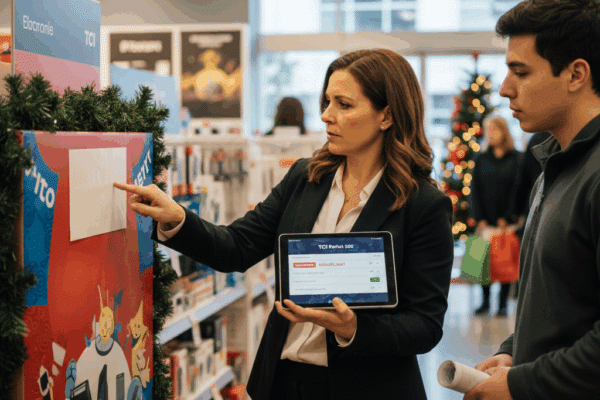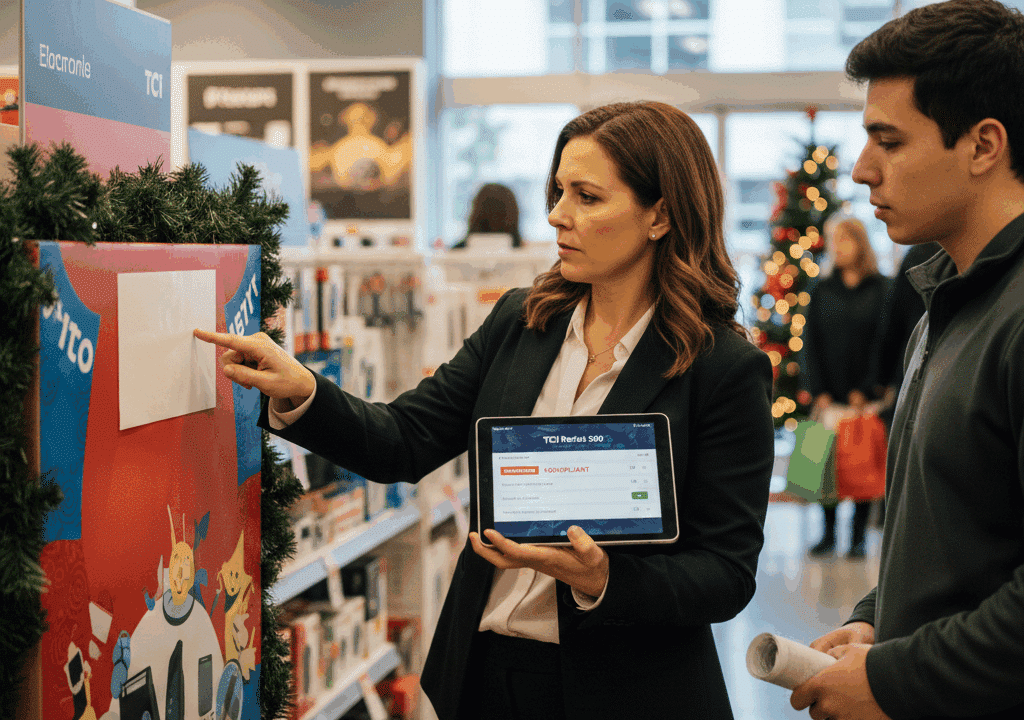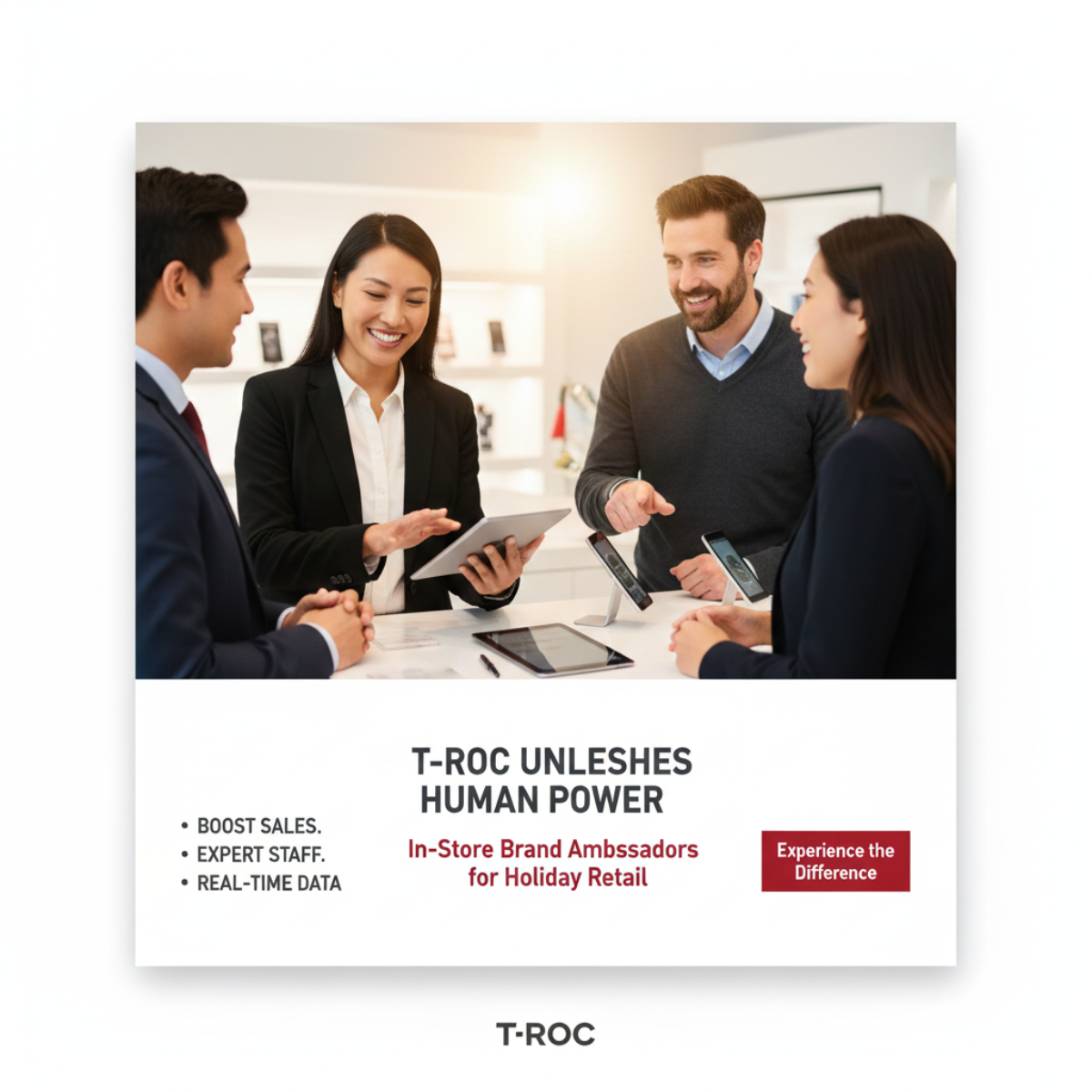
How Business Intelligence in Retail Industry Boosts Success
Business intelligence has become the lifeblood of the retail industry.
This is because retail, arguably more than most other industries, has entered an era where business moves faster and crosses more sales channels than ever before. A comprehensive retail business intelligence solution can provide retail companies incredible advantages in terms of understanding key factors impacting sales, such as customer behavior, supply chain management, omnichannel business operations, customer relationship management, and more.
What is Retail Business Intelligence?
Think about it. The retail industry by virtue of how it operates, and all the players involved generates a mind-blowing amount of business intelligence. There’s:
- customer data
- sales data
- market data
- competitive intelligence
- consumer traffic data
- and many more other data point and sources
Retail business intelligence is the ability to capture this retail data and transform it into actionable insights.
Unfortunately, many companies in the retail sector fail to do this effectively because they are not experts at creating a strategic and integrated retail business intelligence solution.
The right retail business intelligence data leads to insights that drive more informed decisions across retail operations, from implementing new customer engagement solutions, to directing marketing campaigns, to improving merchandising in an effort to optimize store floor plans.
The ultimate goal of business intelligence is to increase retail sales and revenue performance. There is one caveat, however, it takes the right business intelligence to make things work.
The Importance of Relevant Data and Insights
One of the most important aspects of any business intelligence program is making sure that it is built around accurate, relevant, and actionable data. Gathering mountains of data that is not directly related to your business and its customers is not going to do you any good. If anything, you’ll likely end up with a jumble of facts and figures that muddy the waters rather than clarify decisions.
The Value of A Business Intelligence Partner
A good retail management partner will bring proprietary retail business intelligence software and other advanced technology solutions to the table. These solutions take the guesswork out of your business intelligence program by capturing and drilling down the right data into crystal-clear insights, and then making these insights available to key decision-makers in real time. A good partner and program will help you make better business decisions and empower you to adapt, change, and redirect retail operations the moment the need arises.
The Key Benefits Of Retail Business Intelligence
The overarching benefit of good business intelligence is the ability to make better decisions faster and with more confidence. Now let’s look at some specific examples of how better intel can lead to better bottom-line performance.
Customer Relationship Management
Delivering an outstanding customer experience is vital to just about any business in the sales and service arena. Naturally, the better a retail company understands its customers, the better it can service them. A solid business intelligent solution and customer data platform can lead to measurable improvements in customer engagement, customer satisfaction, customer loyalty programs, marketing campaigns, and customer retention.
This is particularly valuable in today’s omnichannel retail industry, where shoppers are coming to brands and businesses in so many different ways and doing it 24.7.365 thanks to online sales. Knowing how, when, and what type of customer prefers to shop and examining data analytics that spots customer behavior trends can go a long way to improving their shopping journey – which in turn generates increased conversions.
Improved Supply Chain And Inventory Management
Business intelligence can also improve retail operations by providing real-time visibility into the way a company manages on-hand stock and inventory. From sourcing merchandise to warehousing items to getting products on the sales floor, the process can be challenging for retailers. However, inventory mishaps almost always result in missed sales opportunities. After all, if a product doesn’t get to the proper location or its left languishing in the backroom while store shelves and displays remain empty, customers can’t purchase that product.
One great business intelligence tool that’s proving to be a huge advantage in inventory management is RFID (radio frequency identification). While this technology has been around for a while now, new ways of optimizing it are helping retailer re-imagining inventory on a store-by-store, product-by-product basis for precision inventory management and sales optimization.
RFID allows retailers to calculate on-hand inventory in a matter of minutes. The manual process of taking on-hand inventory used to be a painstakingly time-consuming and fraught with human error. RFID automates the process providing real-time inventory insight, so that products always make their way to the shelves – in store and online – to delight and satisfy customer needs and expectations.
Merchandising/Store Layout
Great merchandising is like a great salesperson – it makes a huge difference in the customer journey and, ultimately, the buying decision. Innovative business intelligence solutions, such as Vision by The Revenue Optimization Companies (T-ROC), are giving retail organizations visibility into their merchandising with a level of detail and timeliness they could never have imagined previously.
In the hands of highly trained field teams, these retail business intelligence platforms are able to provide a real-time picture into any store or retail environment, right down to backing up the captured data with on-the-spot photos. Retailers are able to answer these big questions:
- Which products are selling, and which ones are underperforming?
- Do stores appear clean or cluttered?
- Are displays positioned correctly?
- Are products properly displayed and faced on shelves?
- Is merchandise priced correctly?
- Are signage and marketing materials in the right places?
Thanks to advanced field management solutions, merchandising becomes a technology-driven process that is no longer reliant solely on typical planograms, but rather is informed by real-time business intelligence. Companies are able to focus their energies on their most profitable products and top-performing locations, while also identifying products and stores that are underperforming to quickly take the appropriate steps to remedy the situation.
Employee Performance
Business intelligence software can also be used to manage and track employee scheduling, performance, and compliance:
- Are they performing the tasks they are assigned?
- Are they where they’re supposed to be each day?
- Are they engaging customers properly?
Using technology to manage employees in full disclosure holds them accountable for their performance, allows them to see successes and shortcomings, and more often than not, inspires them to bring their best every day.
Improved Marketing Materials
There are more promotional avenues today for brands and retailers than ever before thanks to social media platforms, streaming services, and other online channels. To get the best results from any integrated marketing and promotional program, you need to understand consumer purchasing patterns as thoroughly as possible.
This is one more reason business intelligence is playing such a vital role in the retail industry. It gives retail companies a glimpse into their customers psyche – product preferences, brand awareness, related interests and more. Plus, business intelligence can spot trends on social media right down to metrics like page views and customer “likes” to help retailers improve click-through and, ultimately, conversion rates on their marketing programs.
Up Sales, Control Costs Increase sales while controlling costs
Yes, business intelligence is another expense on that spreadsheet. However, when done right the investment is well worth it because good business intelligence helps brands and retailers lower the cost of doing business in so many ways:
- When you can clearly and quickly identify areas of inefficiency in your business model, you can fix the problems faster.
- When you can identify wasted marketing dollars, you can allocate them elsewhere.
- When you see what products are moving and which ones are struggling, you can make decisions to rethink your inventory.
- When you know where, when, and how customers are shopping, you’ll close more sales.
A solid retail business intelligence plan is a bottom-line winner.
If you’re looking for business intelligence expertise from leaders in the retail industry who have been delivering it for decades, contact the experts at The Revenue Optimization Companies (T-ROC).
FAQs
How is business intelligence used in the retail industry?
It’s used by brands and retailers to gain a clear and actionable understanding of customer behavior, product sales, merchandising, inventory, marketing, and operations. Using these insights, retailers are able to make more informed and impactful business decisions.
What is a retail intelligence platform?
A retail intelligence platform is a software solution that collects real-time customer and operational data and distills it into actionable insights for a retail business.
What is an example of business intelligence?
A major electronics brand deploys a field management software that features real-time photo capture to ensure merchandising compliance, track sales by product and location, and provide a detailed analysis of store conditions.








